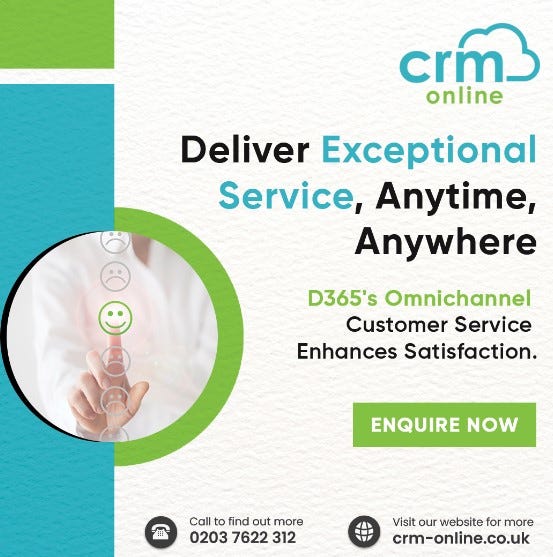Financial Management Software | Accounting software - CRM Online
In the ever-evolving world of business, managing finances effectively is a key component of sustaining growth and profitability. This is where financial management software and accounting software come into play. In recent years, the integration of financial and accounting functions with Customer Relationship Management (CRM) systems has become an essential tool for businesses aiming to streamline their operations and improve their financial oversight.
This blog explores the role of financial management software and accounting software in CRM systems and how they help businesses make better financial decisions, enhance customer satisfaction, and improve overall efficiency.

What is Financial Management Software?
Financial management software is a tool that enables businesses to manage their financial transactions, monitor cash flow, budget, forecast, and generate financial reports. This software is designed to assist with financial planning, analysis, and reporting, providing real-time insights into the financial health of an organization.
Key Features of Financial Management Software:
- Budgeting and Forecasting: Financial management software allows businesses to set budgets, track actual expenditures, and forecast future financial performance.
- Financial Reporting: Automated reporting tools generate real-time financial statements, balance sheets, and income statements.
- Cash Flow Management: The software helps businesses track and manage their cash inflows and outflows, ensuring financial stability.
- Compliance and Taxation: It ensures businesses comply with financial regulations, automate tax calculations, and generate required filings.
What is Accounting Software?
Accounting software is a type of software designed to handle accounting tasks such as bookkeeping, invoicing, payroll, and accounts payable and receivable. It helps businesses track their financial transactions and ensures they have accurate records for tax purposes, audits, and financial analysis.
Key Features of Accounting Software:
- General Ledger (GL): A complete record of financial transactions, used to create accurate financial statements.
- Accounts Payable and Receivable: Tracks payments owed to and by the business, making it easier to manage outstanding bills and incoming payments.
- Invoicing and Billing: Enables businesses to automate invoice creation, send reminders for overdue payments, and integrate payment processing.
- Payroll Management: Manages employee payments, tax deductions, benefits, and reports to ensure accurate compensation.
The Role of CRM Software in Business
Customer Relationship Management (CRM) software is designed to manage a company’s interactions with current and potential customers. It provides a centralized platform for tracking customer information, sales activities, marketing efforts, and customer support.
Key Features of CRM Software:
- Contact Management: Stores and organizes customer contact information, enabling quick access for sales and support teams.
- Sales Automation: Automates sales tasks such as lead tracking, follow-ups, and sales forecasting.
- Marketing Automation: Helps businesses create targeted marketing campaigns, segment audiences, and track customer engagement.
- Customer Support: Provides tools to manage customer inquiries, track service requests, and maintain a high level of customer satisfaction.
Integrating Financial and Accounting Software with CRM
Integrating financial management and accounting software with CRM systems offers numerous benefits. Here’s how this integration can improve your business operations:
1. Holistic Financial Visibility
When financial data is integrated with customer data, businesses gain a more complete view of their financial performance. Sales data, customer payment histories, and revenue reports can be accessed directly within the CRM system. This enables finance teams to make informed decisions based on real-time insights.
2. Streamlined Billing and Invoicing
By linking accounting and CRM software, businesses can automate the invoicing process. When a sale is made, the CRM system can generate and send invoices, and the accounting software can track payments. This eliminates the need for manual entry, reducing errors and improving cash flow management.
3. Improved Cash Flow Management
The integration helps businesses track customer payments, manage outstanding invoices, and monitor cash flow. A CRM system connected to accounting software can automatically update the accounts receivable status and alert teams about overdue payments, which is crucial for maintaining liquidity.
4. Better Customer Insights
Integrated software gives businesses a deeper understanding of their customers. CRM data, such as customer lifetime value (CLV), purchase history, and payment patterns, can be used to predict financial trends and create targeted marketing strategies. This level of insight improves forecasting accuracy and helps businesses plan for growth.
5. Enhanced Decision-Making
The combination of financial and customer data makes it easier for businesses to assess profitability, identify cost-saving opportunities, and optimize their pricing strategies. Financial reports, combined with CRM insights, allow management to make decisions based on a complete picture of both customer behavior and financial health.
6. Efficiency and Time-Saving
The integration reduces the need for manual data entry between systems, which saves time and minimizes the chances of errors. Automation of routine financial and accounting tasks allows staff to focus on more value-added activities, enhancing overall productivity.
7. Tax and Compliance Management
With integrated software, businesses can ensure that they comply with financial regulations and tax laws. Customer payments, invoices, and expenses are all tracked, making tax filing and audits more straightforward.
Conclusion
The integration of financial management software, accounting software, and CRM systems creates a powerful toolkit for modern businesses. It helps businesses streamline their financial operations, gain deeper customer insights, and make better-informed decisions. With the right combination of financial and customer data, businesses can optimize their operations, improve profitability, and offer superior customer service.
Investing in an integrated software suite is no longer just a luxury but a necessity for businesses aiming to thrive in today’s competitive landscape. Whether you’re a small startup or an established enterprise, leveraging these tools will provide you with the visibility and control needed to achieve financial success.
Comments
Post a Comment